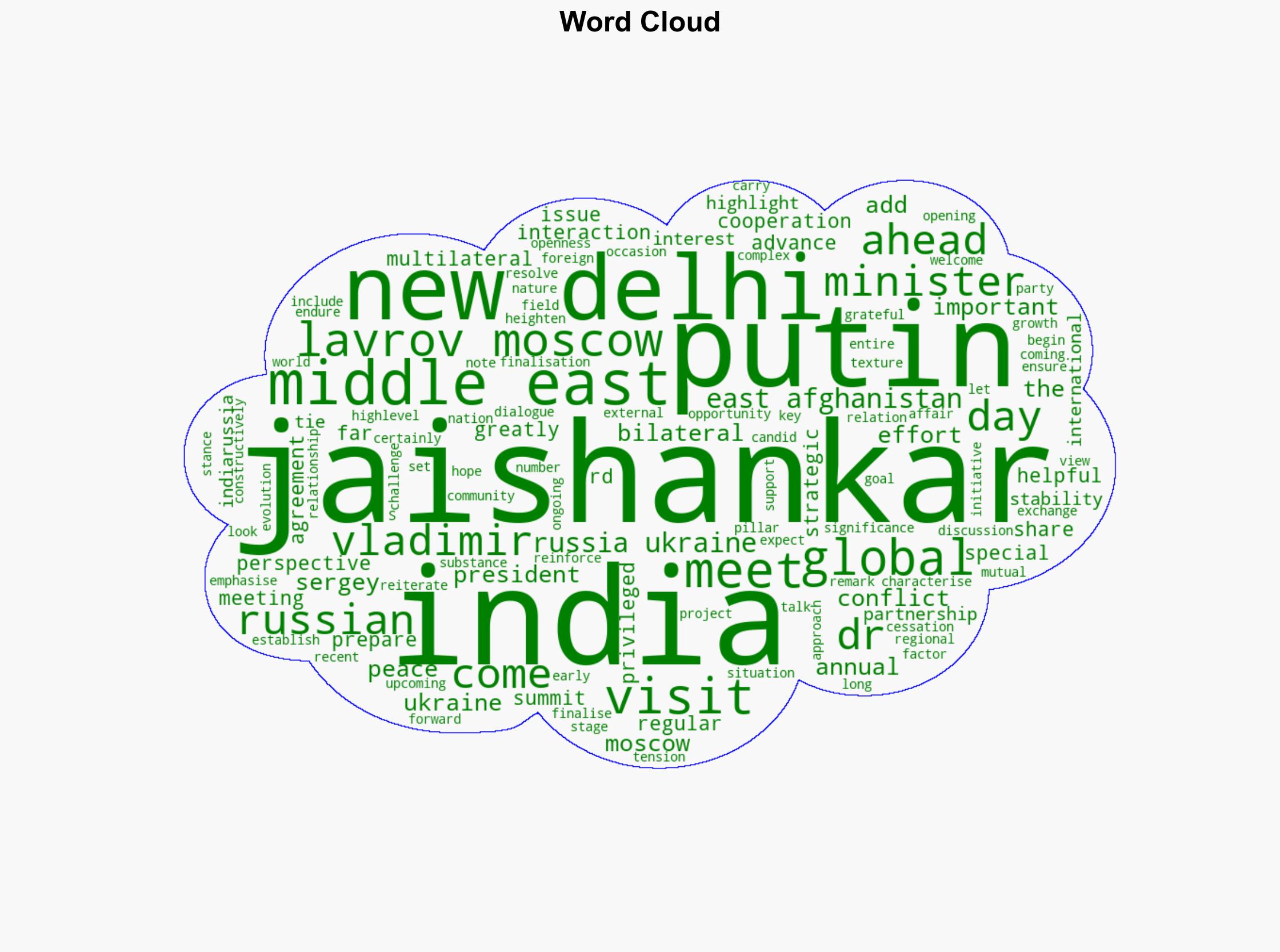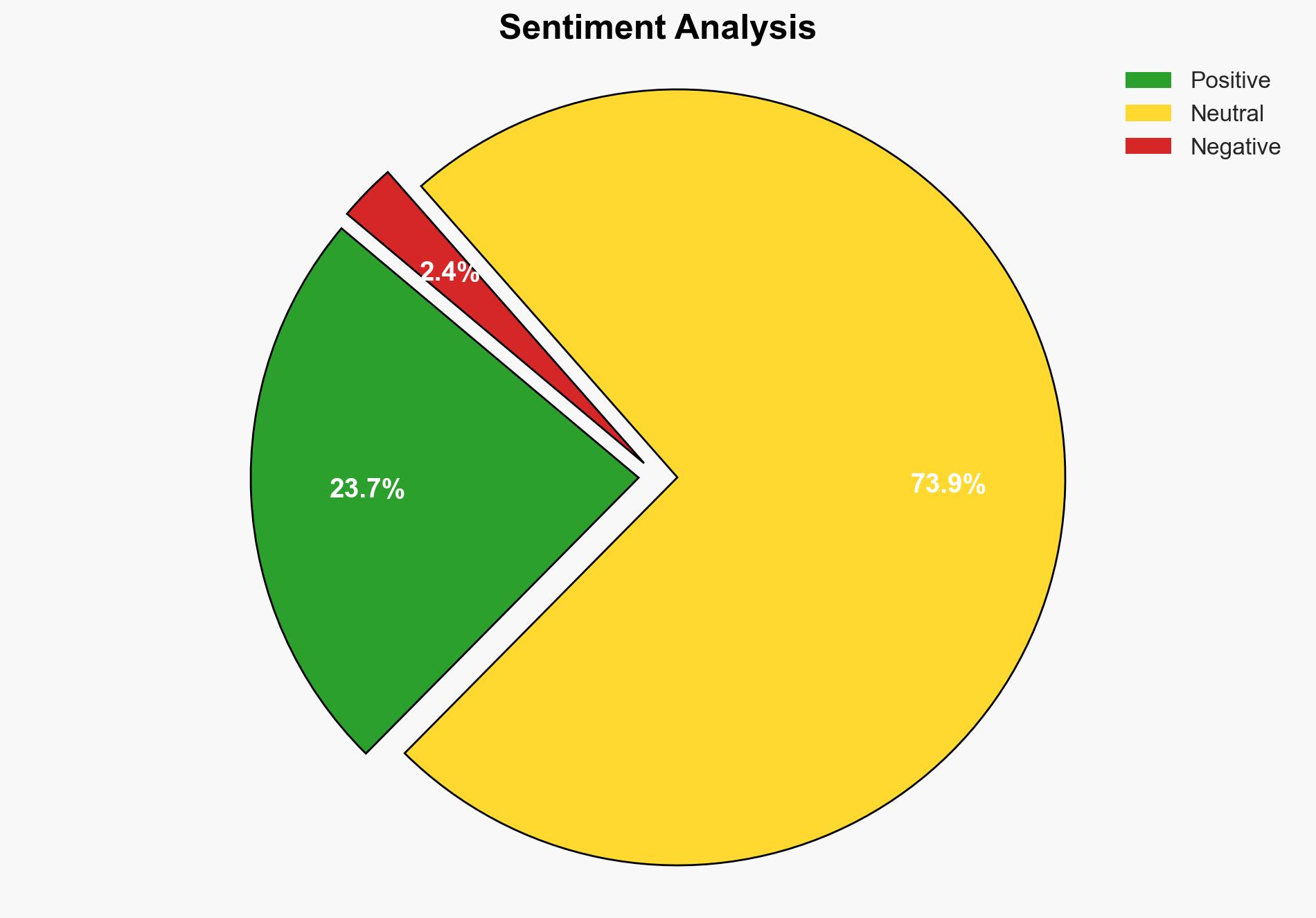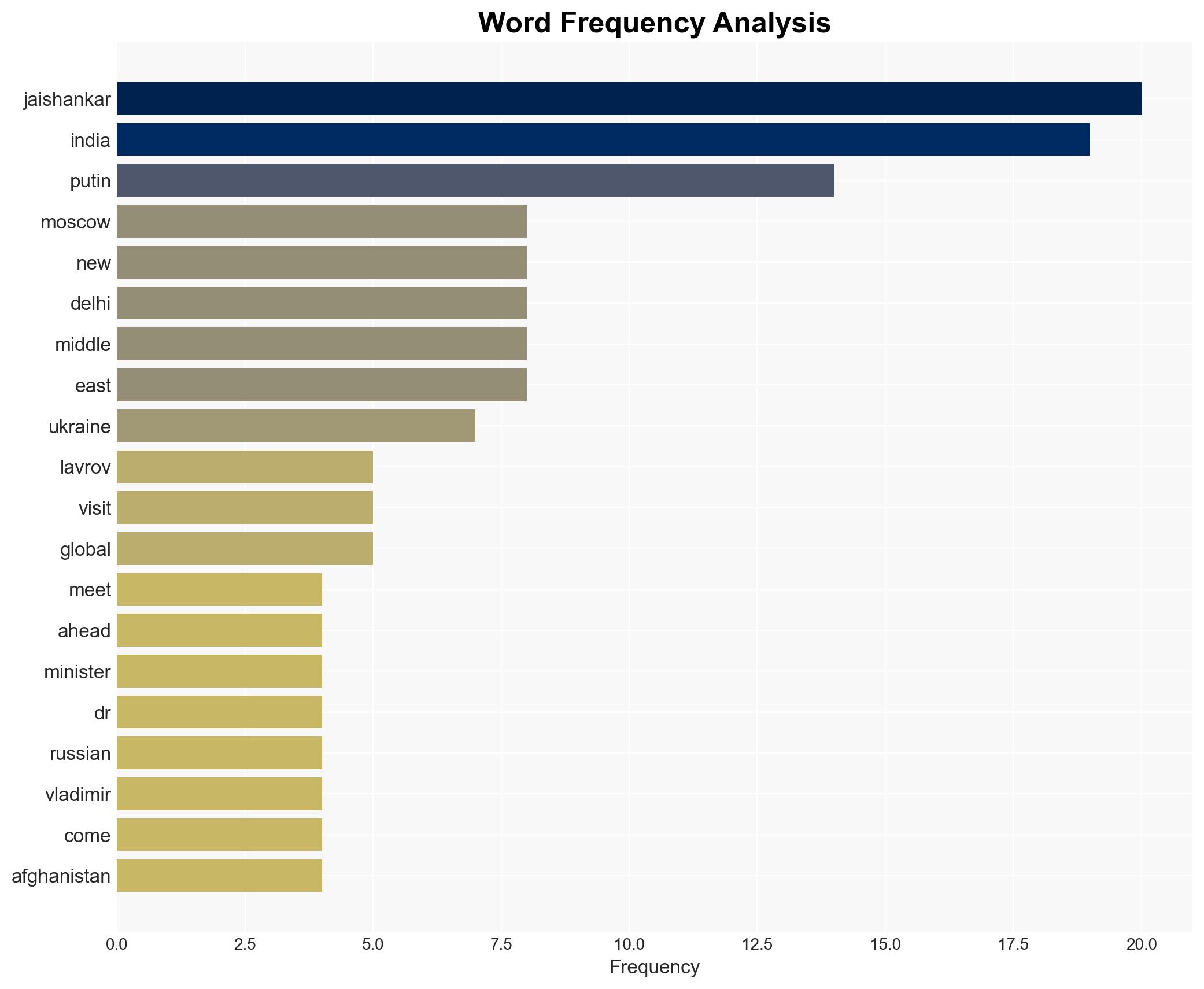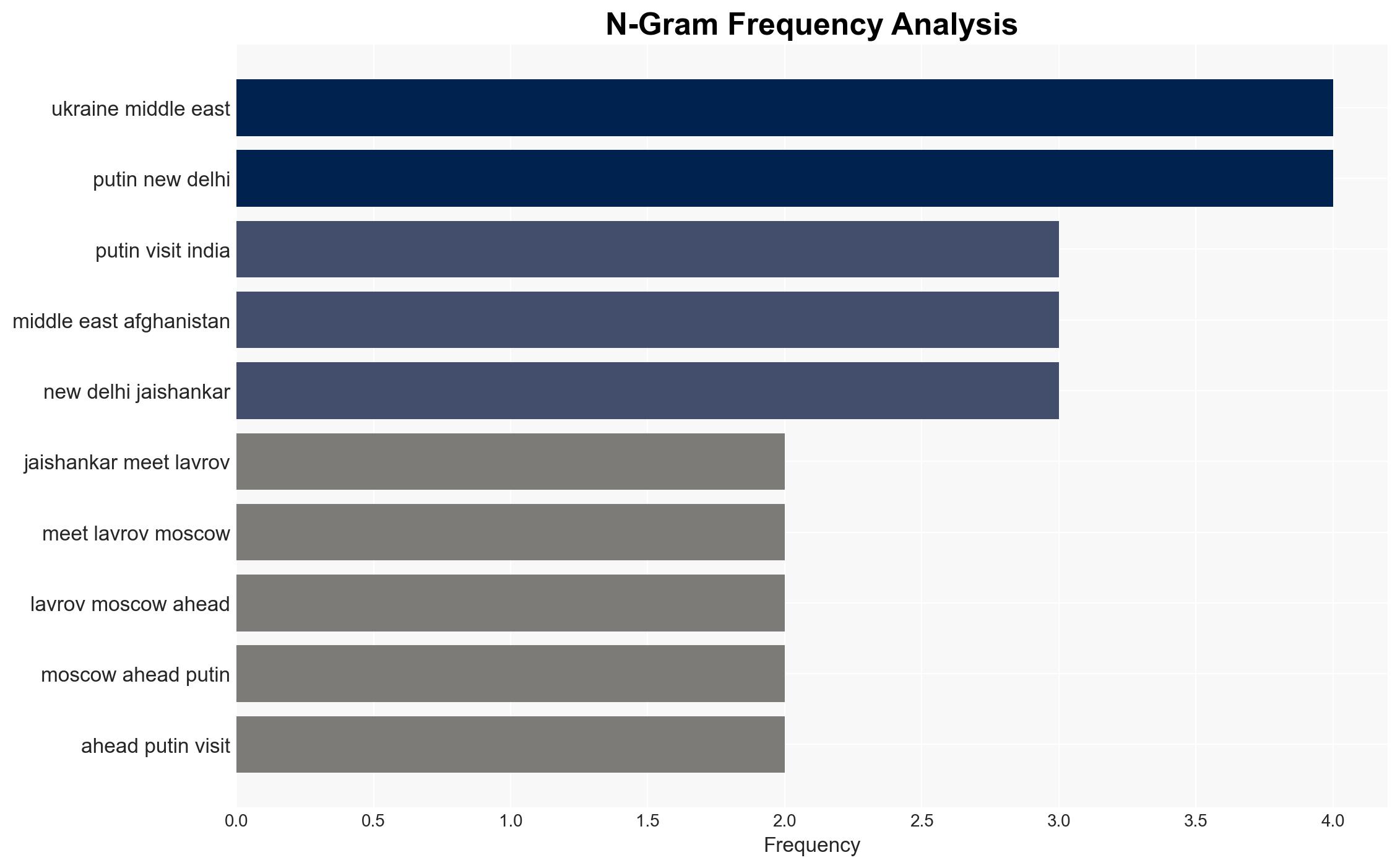Jaishankar Meets Lavrov In Moscow Ahead Of Putin’s Visit To India – Ndtvprofit.com
Published on: 2025-11-18
AI-powered OSINT brief from verified open sources. Automated NLP signal extraction with human verification. See our Methodology and Why WorldWideWatchers.
Intelligence Report:
1. BLUF (Bottom Line Up Front)
The meeting between Indian External Affairs Minister Dr. S. Jaishankar and Russian Foreign Minister Sergey Lavrov in Moscow is a strategic move to reinforce bilateral ties and prepare for President Vladimir Putin’s visit to India. The most supported hypothesis is that this meeting aims to solidify strategic partnerships amidst global tensions, particularly concerning the Ukraine conflict and regional stability in South Asia. Confidence Level: Moderate. Recommended action includes monitoring the outcomes of the agreements and initiatives discussed, as they could influence regional power dynamics.
2. Competing Hypotheses
Hypothesis 1: The meeting is primarily to strengthen India-Russia bilateral relations and prepare for President Putin’s visit, focusing on strategic partnerships and multilateral cooperation.
Hypothesis 2: The meeting serves as a platform for India to mediate or influence Russia’s stance on global conflicts, such as the Ukraine crisis, leveraging its strategic partnership to promote peace and stability.
Hypothesis 1 is more likely due to the emphasis on bilateral agreements and strategic partnerships in the source text, while Hypothesis 2, although plausible, lacks direct evidence of mediation intentions.
3. Key Assumptions and Red Flags
Assumptions: India and Russia have mutual interests that align closely enough to warrant high-level summits. The strategic partnership is resilient despite global tensions.
Red Flags: Potential bias in interpreting the meeting’s significance due to India’s non-aligned stance. Lack of transparency in the specific agreements and initiatives discussed could indicate hidden agendas.
Deception Indicators: Overemphasis on the candid nature of dialogues may mask underlying disagreements or strategic divergences.
4. Implications and Strategic Risks
The strengthening of India-Russia ties could shift regional power balances, particularly in South Asia. This may provoke reactions from other global powers, potentially escalating political tensions. Economic implications include potential shifts in trade alliances. Cyber and informational risks involve increased espionage or misinformation campaigns targeting the partnership.
5. Recommendations and Outlook
- Monitor the finalization of bilateral agreements for potential impacts on regional stability.
- Engage in diplomatic dialogues with other regional powers to mitigate potential escalations.
- Best Scenario: Strengthened India-Russia ties lead to enhanced regional stability and economic growth.
- Worst Scenario: Escalation of global tensions due to perceived alliances, leading to economic sanctions or military posturing.
- Most-likely Scenario: Incremental strengthening of bilateral ties with moderate impact on regional dynamics.
6. Key Individuals and Entities
Dr. S. Jaishankar, Sergey Lavrov, Vladimir Putin
7. Thematic Tags
Regional Focus, Regional Focus: South Asia, Russia, India, Ukraine Conflict, Strategic Partnerships
Structured Analytic Techniques Applied
- Causal Layered Analysis (CLA): Analyze events across surface happenings, systems, worldviews, and myths.
- Cross-Impact Simulation: Model ripple effects across neighboring states, conflicts, or economic dependencies.
- Scenario Generation: Explore divergent futures under varying assumptions to identify plausible paths.
Explore more:
Regional Focus Briefs ·
Daily Summary ·
Support us
·





